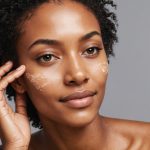Understanding Sensitivity in Skin
Recognising sensitive skin can sometimes be a challenge, as it shares characteristics with other skin types. However, certain signs and symptoms are indicative. These often include redness, irritation, and sensations of burning or stinging, particularly after using skincare products. Typically, sensitive skin reacts more intensely than normal skin to external factors such as weather changes and cosmetics.
Various skin sensitivity causes can contribute to these reactions. Common culprits include harsh or allergenic ingredients in skincare products, environmental pollutants, and even stress. Additionally, hormonal changes and genetic predisposition can play significant roles. Identifying these factors helps in managing and soothing sensitive skin effectively.
Also to see : Top Techniques to Minimize Screen Time and Boost Your Eye Health
When it comes to identifying sensitive skin, consider both physical symptoms and the frequency of reactions. Frequent occurrences may suggest sensitivity. The importance of understanding individual skin needs cannot be overstated, as it enables tailored skincare approaches. For sensitive skin, this might mean using products with calming ingredients, avoiding known irritants, and adopting a routine that prioritises hydration and protection.
Exfoliation Benefits for Sensitive Skin
Exfoliation can be transformative for sensitive skin when done correctly. One of the main exfoliation benefits is the improvement in skin texture and appearance. By removing dead skin cells, exfoliation aids in smoothing the skin, resulting in a brighter and more even complexion. This process doesn’t just polish the surface; it enhances the skin’s ability to absorb moisturisers and other sensitive skin care products more effectively, which can lead to healthier skin overall.
Have you seen this : Ultimate Guide to the Toughest Fabrics for Women”s Activewear: Discover Long-Lasting Durability
For those with sensitive skin, a tailored exfoliation routine is essential. It’s essential to select gentle exfoliants designed for sensitive skin care to avoid irritation or damage. A routine that incorporates mild chemical exfoliants, like lactic or mandelic acids, can be particularly beneficial. These components are less harsh and cater specifically to delicate skin needs, promoting a gradual turnover rate.
Moreover, regular exfoliation fosters overall skin health by unclogging pores and preventing breakouts, which is particularly important for sensitive skin that is prone to reactions. In conclusion, while exfoliation can be immensely beneficial in skin smoothing and improving texture, it must be approached with care and attention to individual skin sensitivities.
Types of Exfoliants for Sensitive Skin
Navigating exfoliation for sensitive skin requires careful consideration of the types of exfoliants available. Understanding the differences can help in making an informed choice.
Physical Exfoliants
Physical exfoliants involve granules or tools that manually slough off dead skin cells. Common examples include brushes, scrubs, or exfoliating gloves. For those with sensitive skin, it’s crucial to choose products with gentler particles such as oatmeal or jojoba beads.
To maintain skin integrity, use light pressure and avoid more than twice a week. It can be tempting to scrub vigorously, but gentle application minimises irritation. Potential drawbacks of physical exfoliants include causing micro-tears or discomfort if overused or applied with excessive force.
Chemical Exfoliants
Chemical exfoliants dissolve dead skin cells using acids or enzymes. Popular chemical exfoliants include AHAs (alpha hydroxy acids) like glycolic acid and BHAs (beta hydroxy acids) like salicylic acid. For sensitive skin, lactic acid is a softer AHA alternative, renowned for its hydrating properties.
When selecting a chemical exfoliant, consider formulations with lower concentrations to minimise potential irritation. It’s advisable to patch-test new products and gradually incorporate them into a skincare routine. Knowing how to choose the right chemical exfoliant can transform your exfoliation experience, ensuring skin remains smooth and healthy.
Recommended Exfoliation Frequency
Understanding the ideal exfoliation frequency for your skin type is essential. For those with sensitive skin, establishing a gentle routine is critical to maintaining skin health without irritation. The general recommendation is to exfoliate once or twice a week. However, determining the right skincare schedule involves more than just following generic advice.
Several factors influence your personal exfoliation needs, including skin sensitivity, existing skin conditions, and the products you use. Those with extremely sensitive skin may benefit from reducing frequency even further, while others might tolerate more regular exfoliation. Paying attention to your skin’s response is vital.
Signs indicating a need to adjust your exfoliation schedule include redness, irritation, and dryness. If you notice such symptoms, it might be best to decrease the frequency or try a milder exfoliating product.
A balanced sensitive skin routine that carefully assesses these factors will help maintain soft, healthy skin without compromising its natural barrier. Remember, exfoliation is beneficial but should always be tailored to your individual skin needs.
Recognizing Over-Exfoliation Signs
It’s crucial to understand over-exfoliation and its impact on your skin. Over-exfoliation occurs when the skin’s natural balance is disrupted, often leading to uncomfortable symptoms.
Common Symptoms
Signs of over-exfoliation can include redness, inflamed skin, excessive dryness, and even peeling. These symptoms indicate that the protective barrier of your skin has been compromised, making it more prone to damage and sensitivity.
Consequences for Sensitive Skin
For those with already sensitive skin, over-exfoliating can be particularly damaging. It can exacerbate existing conditions, leading to increased irritation and possibly more severe reactions like burning sensations or persistent redness. This not only diminishes skin health but may also interfere with the effectiveness of other skin care treatments.
Recovery Tips
If you suspect you’ve over-exfoliated, managing skin sensitivity becomes paramount. Begin by:
- Ceasing all exfoliation until the skin calms.
- Applying gentle moisturizers to restore hydration.
- Avoiding products with harsh chemicals or fragrances.
Focusing on soothing, reparative treatments ensures the skin’s natural barrier is rebuilt, helping to alleviate irritation and restore a healthy complexion. Prioritising gentle care will promote recovery and protect your skin in the long term.
Alternative Skincare Practices
When it comes to maintaining smooth skin, exploring alternative skincare methods can be highly beneficial, particularly for individuals with sensitive skin. Alternative solutions often incorporate gentler, natural ingredients designed to nourish and hydrate the skin without harsh effects.
Firstly, consider hydration as a fundamental element of any skincare routine. Drinking ample water ensures that your skin remains supple and well-moisturised. Moreover, selecting products that emphasize moisture retention can further enhance skin health.
Incorporating soothing ingredients such as aloe vera, chamomile, or oatmeal can also be a gentle yet effective approach. These ingredients are known for their calming properties, which can reduce irritation and redness, making them ideal for sensitive skin alternatives. They not only soothe the skin but also help maintain a balanced skin barrier.
Additionally, avoid any products with alcohol or synthetic fragrances, as they might exacerbate dryness or sensitivity. Seek out skincare routines tailored to your specific needs, focusing on mild formulations and nourishment. This way, your skin remains resilient and can better resist external stressors, promoting an overall healthy appearance.
Expert Opinions and Personal Experiences
Delving into expert advice on exfoliation, skincare professionals stress the importance of understanding your skin type. Dermatologists often recommend choosing exfoliants tailored to individual needs, whether mechanical or chemical. This personalisation aids in avoiding irritation while maximising benefits.
Incorporating personal anecdotes, many skincare enthusiasts share transformative experiences. For instance, Jane, a skincare aficionado, noted that her dull complexion became radiant after introducing a consistent exfoliation routine. This change not only improved her confidence but also encouraged others to adapt similar habits.
Furthermore, skincare testimonials highlight valuable lessons from experienced users. It’s commonly mentioned that moderation is key—over-exfoliating can lead to sensitivity and breakouts. Thus, most advocators suggest exfoliating only two to three times a week for optimal results.
Key takeaways from both professionals and personal accounts emphasize the need for a balanced approach. The right frequency and product choice are pivotal in reaping the benefits of exfoliation without damaging the skin barrier.
Product Recommendations
Discovering the right exfoliation products can be transformative for your beauty routine. Particularly when dealing with sensitive skin, choosing top-rated exfoliants is crucial to achieving a healthy glow without irritation.
Recommended Physical Exfoliants
Physical exfoliants, such as scrubs with fine granules, offer an invigorating cleansing experience. Look for products with natural ingredients like oatmeal or sugar, which are gentle yet effective. For sensitive skin products, it’s wise to avoid those with harsh abrasives that might cause micro-tears.
Recommended Chemical Exfoliants
Chemical exfoliants harness the power of acids like AHA or BHA to gently dissolve dead skin cells. Leading products often contain glycolic or lactic acid, providing a deep but gentle exfoliation suitable for sensitive skin types. Ensure you opt for formulations with lower concentrations to reduce the risk of irritation.
Where to Purchase
When purchasing top-rated exfoliants, choose reputable beauty stores or pharmacies. This ensures you receive authentic products with reliable ingredient lists and formulations. Always review the ingredient list to understand what will come into contact with your skin and to check for any potential allergens.













